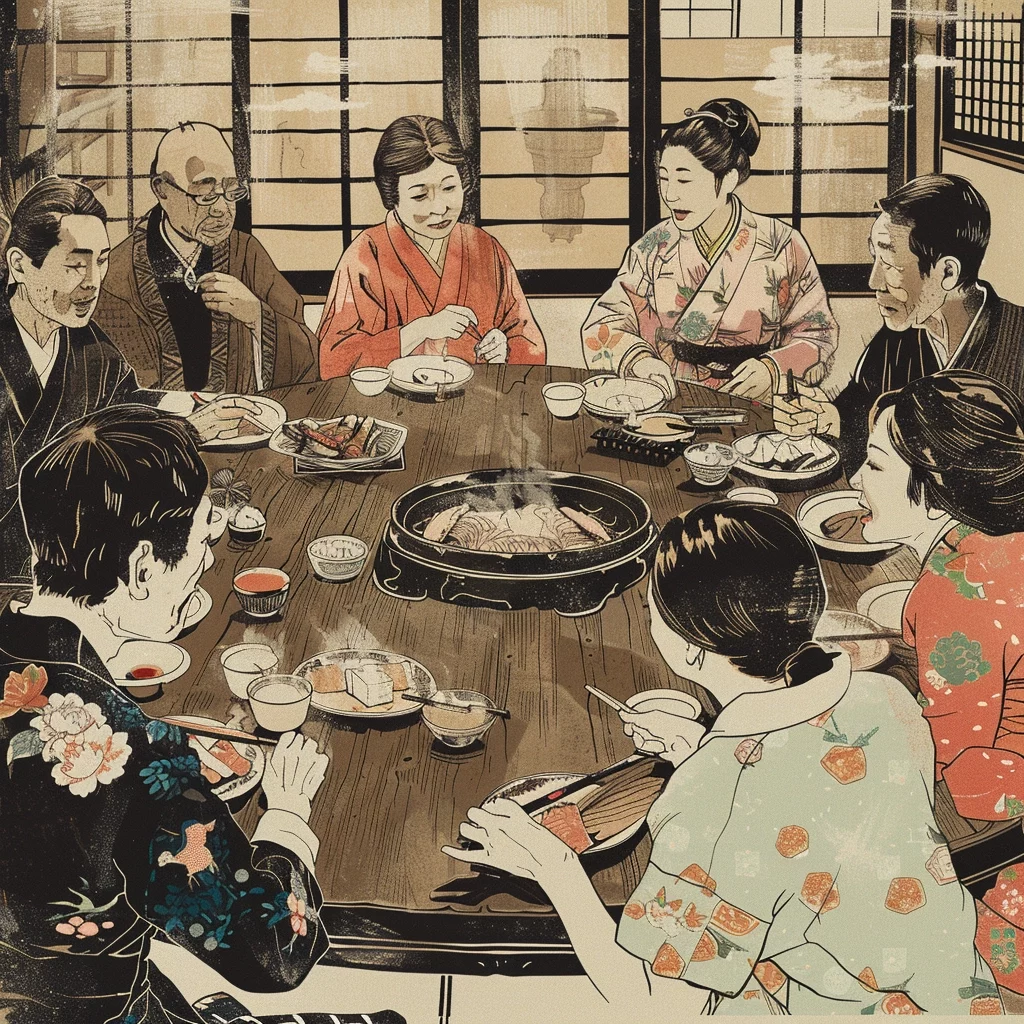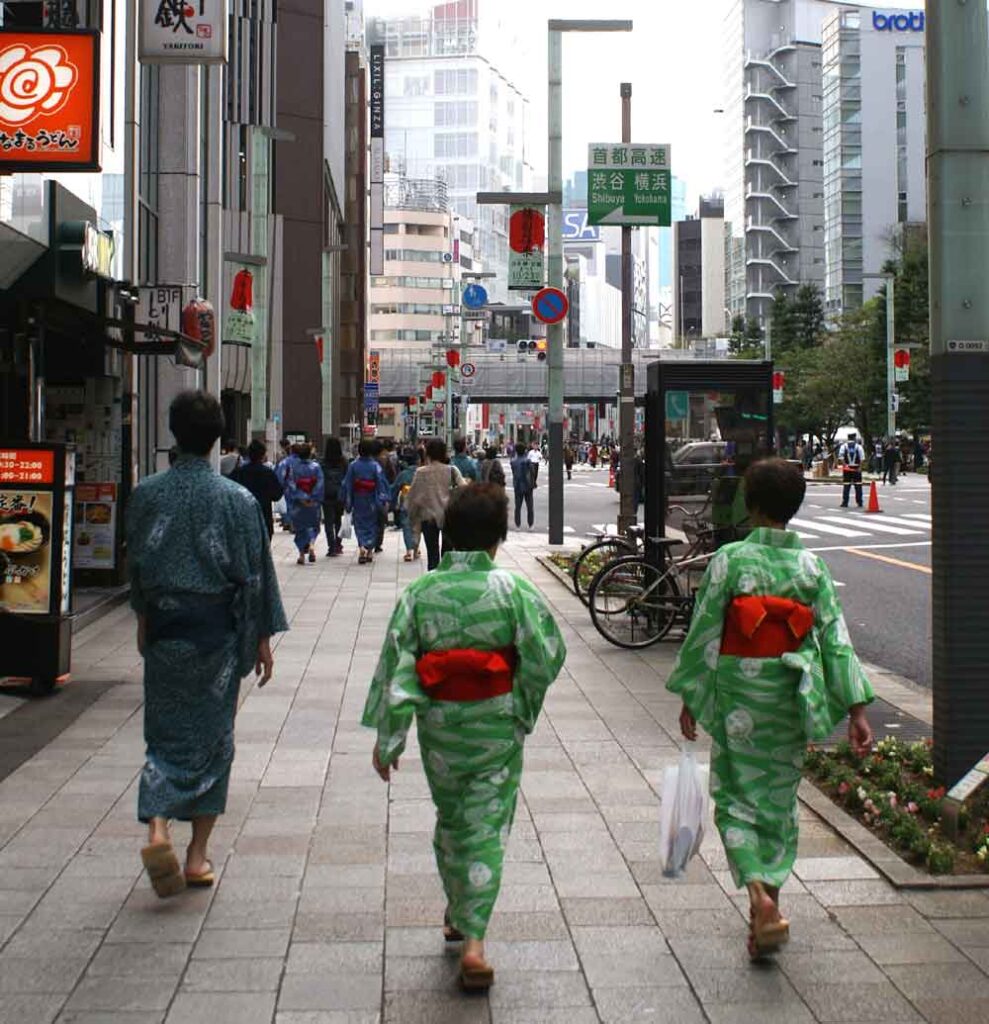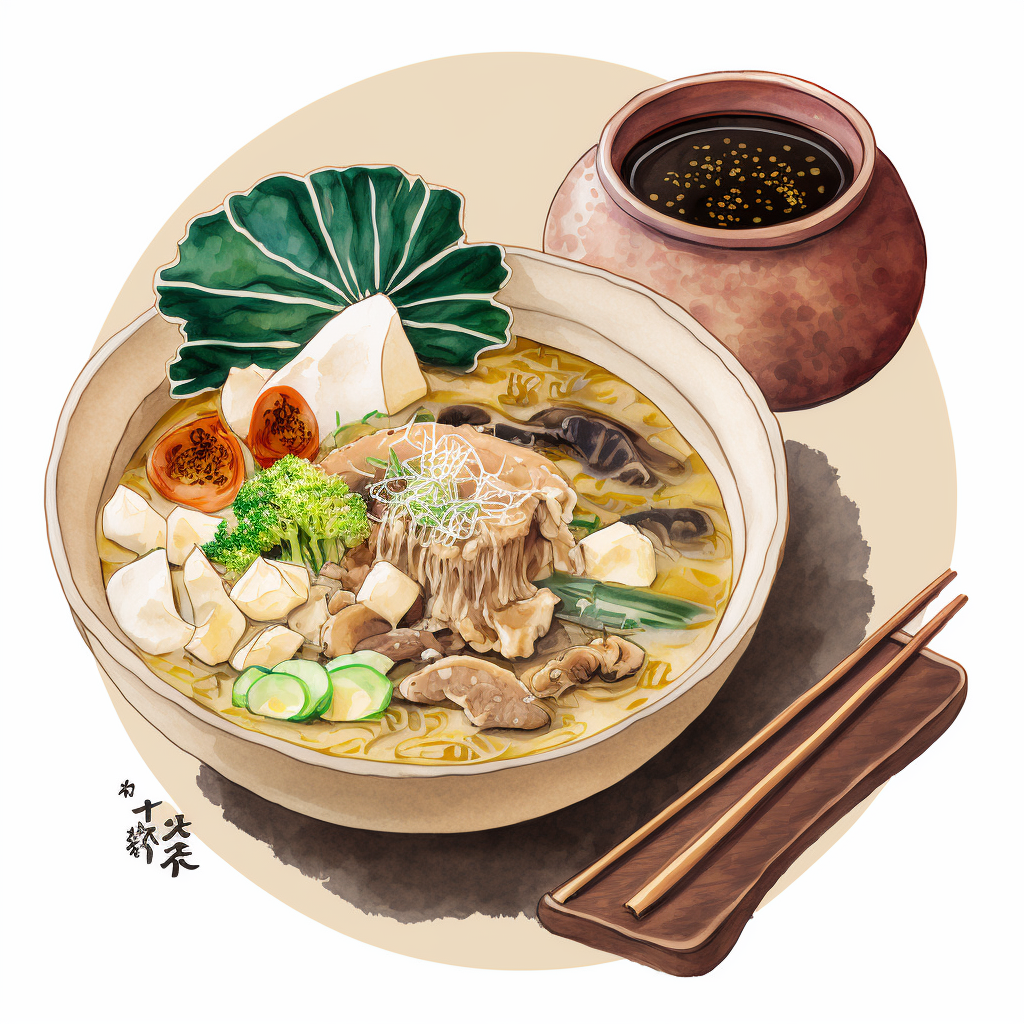In Japan, meals are not just about food but having good table manners. They are also imbued with traditions and rituals that deeply reflect the culture and values of Japanese society. Good manners and politeness at the table are therefore of particular importance, whether at home, in restaurants or during special events. In this article, we will explore the main rules of table etiquette in Japan. As well as the behaviors to adopt to fully enjoy this unique culinary experience.
1. The Importance of Respect and Gratitude
In Japan, showing respect to others, especially guests and the elderly, is essential. Before starting to eat, it is common to say “Itadakimasu” (いただきます). Which means “I humbly receive” or “I am grateful for this food.” At the end of the meal, one expresses gratitude by saying “Gochisousama deshita” (ごちそうさまでした). This roughly translates to “It was a delicious feast.”
2. Use of Chopsticks in Japan
Chopsticks are the basic eating tool in Japan. Also, it is important to never stick your chopsticks vertically in your rice bowl. Because it is reminiscent of a funeral ritual. Likewise, it is impolite to pass food directly from one pair of chopsticks to another. Because it evokes a funerary practice called “Kotsuage”.
3. Sharing and Generosity
In many Japanese restaurants, dishes are often served to be shared with family or friends. When sharing dishes, make sure you don’t take the last portion without giving others the opportunity to have some as well. Generosity and attention to others are key values of Japanese table etiquette.
4. Silence and Discretion
Unlike some cultures where meals are accompanied by lively conversations, it is common in Japan to eat in silence or with calm, unobtrusive conversations. Avoid talking with your mouth full and making too much noise while eating. This helps maintain a peaceful and respectful atmosphere during the meal.
5. Cleaning and Respect for Space
After the meal, it is customary to return the dishes and utensils to their original place and put them away carefully. If someone invites you to their home, it is polite to offer to help clear the table and clean up after the meal. Respecting space and maintaining cleanliness are signs of consideration and gratitude to the host.
In conclusion, respect, gratitude and generosity permeate good table manners in Japan. By following these simple but important rules, you can fully participate in the Japanese dining experience. While honoring the traditions and values of Japanese culture.





